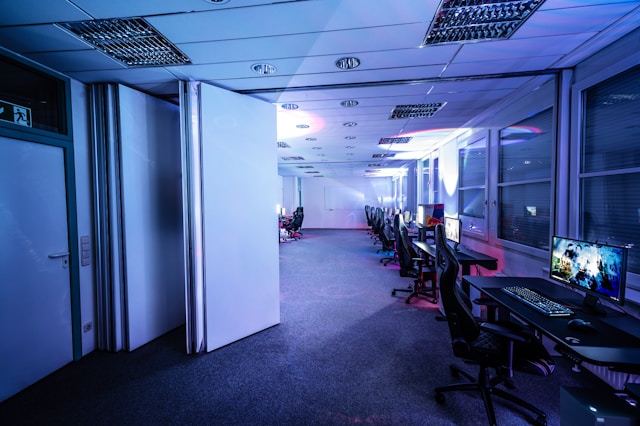In the early days of competitive gaming, training for esports was often informal and self-directed. Players Atlas98 would practice individually, relying on their own skills and strategies to improve their performance. However, as esports has gained prominence and competitiveness, the approach to training has become more organized and systematic. Today, professional esports teams and players employ sophisticated training methods and strategies to enhance their gameplay and achieve peak performance.
One of the key developments in esports training is the establishment of dedicated training facilities and programs. Many professional esports organizations have invested in state-of-the-art training centers equipped with advanced technology, including high-performance computers, gaming peripherals, and simulation tools. These facilities provide players with an environment optimized for practice, analysis, and improvement. The availability of such resources underscores the commitment to training and the desire to create the best possible conditions for success.
Esports training now encompasses a range of components designed to improve various aspects of gameplay. Technical training focuses on honing specific skills related to the game, such as aiming accuracy, reaction time, and game mechanics. Tactical training involves developing and refining strategies, understanding game theory, and analyzing opponent playstyles. Mental training addresses psychological aspects such as focus, resilience, and stress management. By incorporating these elements into their training regimens, esports athletes can develop a well-rounded skill set that enhances their overall performance.
Coaching has become an integral part of the esports training process. Professional teams often employ dedicated coaches who provide guidance on strategy, gameplay analysis, and team dynamics. Coaches work closely with players to identify areas for improvement, develop game plans, and address challenges. The role of the coach extends beyond tactical advice; they also play a crucial role in team management, morale, and communication. This support is essential for optimizing team performance and fostering a positive and productive training environment.
Data analysis and performance metrics are increasingly important in esports training. Teams use sophisticated software and tools to track and analyze gameplay data, providing insights into player performance, strategy effectiveness, and opponent behavior. By examining this data, teams can identify strengths and weaknesses, refine strategies, and make informed decisions. This data-driven approach helps players and coaches make objective assessments and enhance their training efforts.
The integration of physical fitness into esports training is another notable trend. Recognizing the importance of overall health and well-being, many esports organizations are incorporating physical exercise and wellness programs into their training regimens. Regular exercise, proper nutrition, and ergonomic practices contribute to improved focus, stamina, and performance. This holistic approach to training emphasizes the connection between physical and mental health and its impact on esports success.
Esports training is also evolving through the use of technology and innovation. Virtual reality (VR) and augmented reality (AR) are being explored as tools for immersive training experiences, allowing players to practice in simulated environments and scenarios. Additionally, advancements in artificial intelligence (AI) are being used to develop predictive models and training aids, providing players with new ways to enhance their skills and strategies.
In conclusion, the evolution of esports training from a casual hobby to a professional discipline reflects the growing recognition of esports as a competitive and serious field. The development of dedicated training facilities, the incorporation of technical, tactical, and mental training, the role of coaching, the use of data analysis, and the integration of physical fitness and technology all contribute to the advancement of esports training. As the industry continues to grow, the approach to training will likely continue to evolve, driving further innovation and excellence in competitive gaming.
